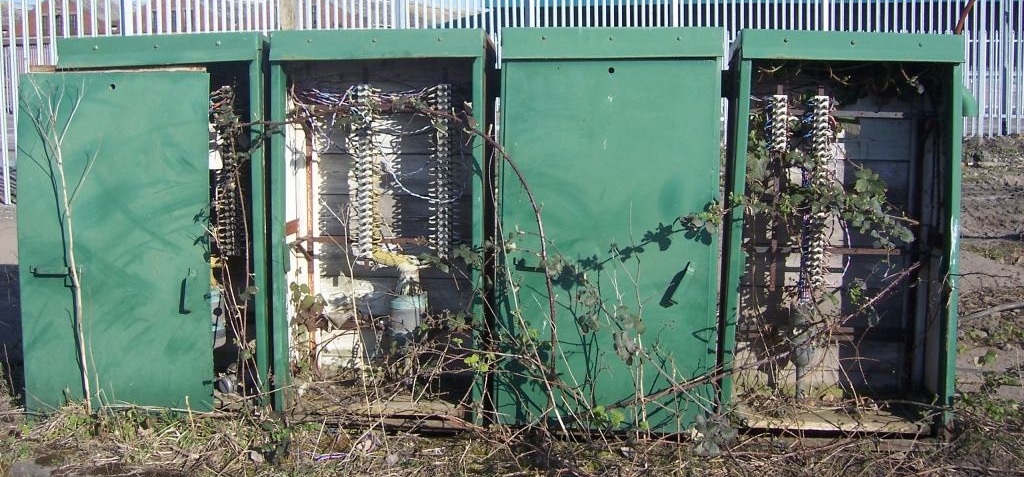Ignore the pachyderm! By 2017 100% of the UK will have broadband (supposedly).
It would seem that far too many people are happy to skirt around the issues, to deliver platitudes and sound bites to willing journalists who don’t actually feel like investigating the truth or facing the elephant in the country. Particularly in the countryside. I was brought up in Yorkshire where a spade (particularly when used for a fibre dig) is a spade.
UK Broadband is quite simply not fit for purpose. There – a trunk, 2 flappy ears and a long memory. See it?!
Oh yes, there are a few people in the nation who can use iPlayer to watch TV shows they’ve missed without buffering, catch up with friends and family on Facebook and not worry about the automatic video downloading, make the odd Skype call without sounding like an alien or being pixelated, and game with others around the world. The applications mentioned, though, are not bandwidth intensive or real-time critical, though, so it would be more than remiss if our telcos couldn’t provide sufficient connectivity for these types of activities. More worrying is that a huge number of people cannot do any of these things, let alone do more.
Smart meters (a truly bad idea, anyway) are not going to work for many, especially in rural areas, tele-health is bordering on impossible still, innovation has gone by the wayside, etc. Not only have we not been able to do this since the ADSL roll-out, it is looking increasingly unlikely that we will be able to do so this decade. The claims that 20,000 people per week are being connected with “superfast” broadband start to fall over the minute you log onto any of the broadband consumer forums and read the real-world experiences behind such claims. It is just hype, crafted for the press release, and spread with jam for the minister appearances in front of the House or news cameras.
The truth is that however much money the UK government seems to throw at BT to deliver nationwide broadband (ADSL, now superfast), the company continually fails to do so. And in a spectacular fashion that requires successive ministers to lie to the public about progress. As good little boys and girls, we all believe what we read in the press and see on TV (right?). We are endlessly told that all is going well, that by 2017 100% of the country will have broadband, and that the mandarins in Whitehall know that they are getting true value out of our money. Yet even though we can see this is definitely NOT the case (as can PAC, NAO etc) we allow good money to be thrown after bad, and with nary a challenge in the mainstream media as investigative journalism appears to have lost the wheels from its wagon.
Recently, there has been a surge in network outages (VirginMedia being the most recent at the beginning of last week), and an increasing number of complaints about (1) paying for superfast and getting nowhere close, (2) people being disconnected for months whilst the ping pong game between ISP and telco fail to resolve faults or long line issues, (3) dirty tricks campaigns that prevent utterly fed-up communities from JFDI themselves, and so on. The list of failures within telecoms at present would be almost funny, in fact, if it wasn’t so very sad that as far as connectivity goes Britain is quickly becoming a third world nation.
Many network operators surveyed recently say that their networks are at full stretch now, and that without substantial investment the strain of IoT (Internet of Things) could cause further breakages. Consumers know first-hand that this is the case because their connections often grind to a halt. Yet, where is the long term cross-party plan, after discussion with that most vital stakeholder (the consumer)? Where is the inquiry into why BT failed to deliver the first round of broadband, yet persistently lied in saying that 99.7% of the country had precisely that? And who the eff decided to set the procurement up so that it could all happen again? (Yeah, yeah, no one ever lost their job buying IBM, but an entire country is losing out right now).
Where is the platform for the great and good of the broadband world, who unsurprisingly do not lurk in Whitehall or Westminster like the paid lobbyists, always ready to advise the policy wonks on what is required and how to reach the day where we can all sit back and enjoy our connectivity? After all, it doesn’t take a rocket scientist to work out that in order to break the cycle of the Broadband Groundhog days of the last 2 decades, the entire country needs to be fibred up with an upgrade path for the future that is gigabit+. Whether individual homes and businesses are on wireless, mobile or a wire, it all has to be fibre-fed. And the closer the fibre is to each premises, mast, hub, etc., the better.
Where are the MPs flocking in droves to Lancashire, Oxfordshire, etc. and exclaiming in joy at the solutions being put in place by (mainly) privately funded alternatives? Where are the lessons learnt from all that has gone before being put into practice? It sure ain’t in a £10M pot for innovation that includes one company whose directors recently all resigned, some satellite providers, and a voucher scheme or two. Where is the MORAL FIBRE, the concern to find the right solution for the well being of this nation, the cojones to face up to errors and JFDI right?
We have covered all this before — over and over, I daresay — and for more than 20 years now. We have shouted, even from within Westminster and Whitehall, but hell, what do we know? We are only the people who need to use it.
If BDUK had adopted Fibre To The Village Pump as even a possible concept, you can guarantee right now that BT would not be sticking cabinets in B4RN villages and cutting through water pipes or fibre, as happened last week. As a BT shareholder, I would want to know what they think they are doing with the company’s capital if that is the best plan they can come up with to capture market share. I mean, really, why compete with a gigabit network that has the support of pretty much all of the community when your only offering is a substandard tech using over-lengthy copper phone lines? (And yes, we know BT could do FTTH on poles, but are all still holding our breath to see this actually occur in Dolphinholme).
Quite simply, these days it is depressing to be a British broadband campaigner. You watch (seemingly on an endless loop) the farcical decisions, policies and spend coming from an establishment that cannot even manage to keep track of its own files, which are on paper (water-damaged is today’s excuse). ON PAPER? Really?!? They feel fit to advise us on digital issues when no digitisation has been done, and even when it is done the serfs (sorry, civil servants) lose it on trains?
So, back to the elephant….
British broadband via BDUK is not fit for purpose today, nor at the current rate will it be in the future, and nor are those making the decisions to spend (WASTE) our money with a company that cannot deliver fit for purpose either.
[And if you want to know how I would deal with the elephant — aside, of course, from addressing it in articles such as this one — I am available as an experienced, consumer-oriented, opinionated, best practice Solution Seeker who has a weekly show on TechQT that discusses all of this broadband stuff and more.]












